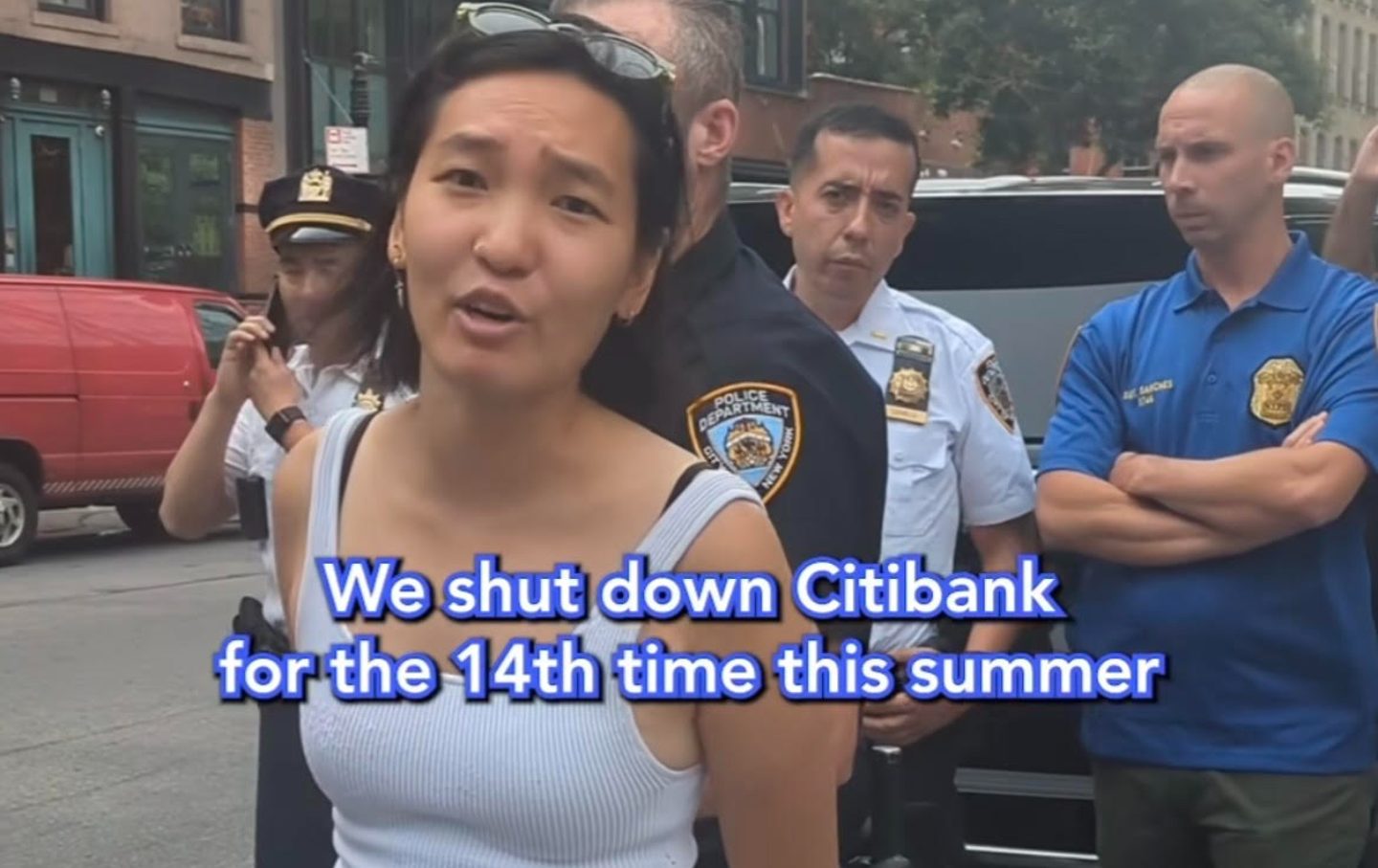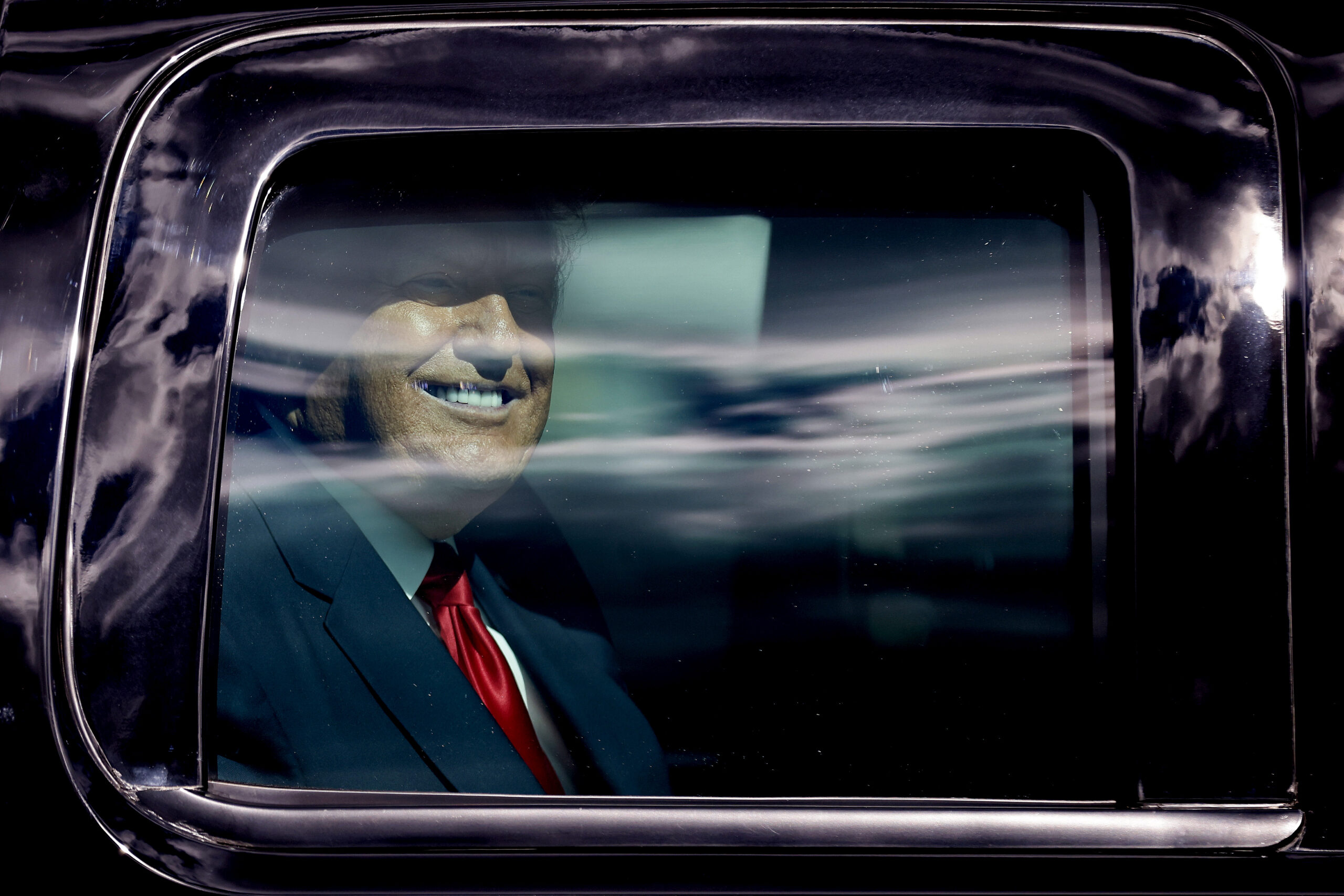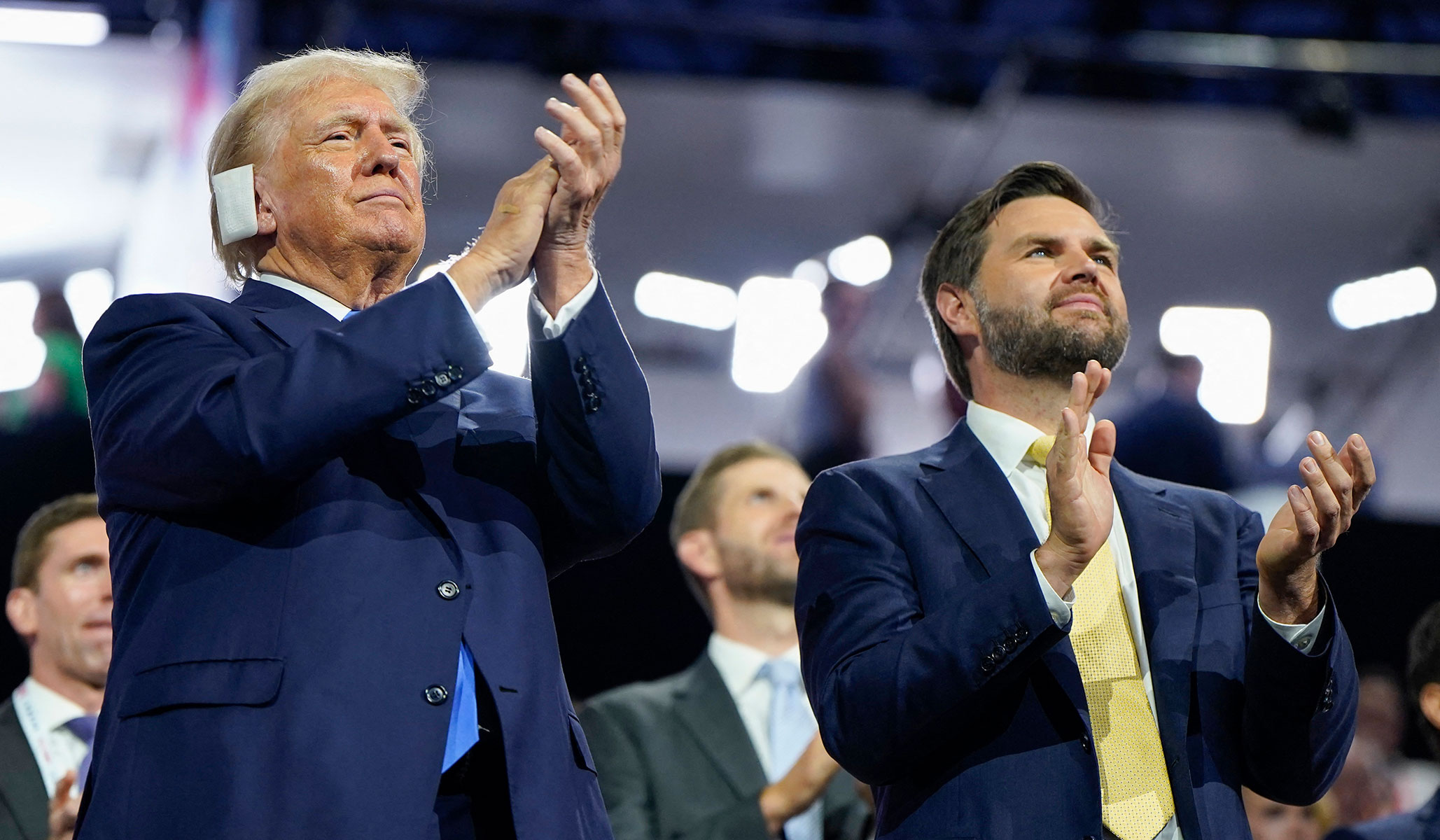Activism
/
August 8, 2024
An interview with Alice Hu, one of the lead organizers of the “Summer of Heat” campaign targeting Wall Street fossil fuel financiers.
Since June 10, a coalition of climate justice activists has blocked entrances and disrupted business-as-usual at Citigroup’s lower Manhattan headquarters a total of 15 times—and counting. Calling itself the Summer of Heat, some 3,000 people have participated in the ongoing campaign, many coming from working-class frontline communities around the city, the country, and the world. There have been more than 460 arrests for nonviolent direct action, including actions at other major financial institutions. The demand is simple: that Citi and its peers stop funding the crime against humanity that is global fossil fuel expansion.
The International Energy Agency, along with the world’s climate scientists, has warned for years that the expansion of fossil fuel production globally must end—and end now—if we’re to avoid the worst scenarios of catastrophic climate change already underway. Defying such warnings, Citigroup has made itself the largest funder of fossil fuel expansion since the 2015 Paris Agreement.
Citi is clearly feeling the heat of this campaign, resorting in recent weeks to repeatedly targeting some of the campaign’s lead organizers with baseless arrests and false charges, including a bogus charge of felony assault, and restraining orders to keep organizers away from the bank’s headquarters.
I spoke with Alice Hu, 26, senior climate campaigner at New York Communities for Change, one of the New York City–based groups co-organizing Summer of Heat along with Planet Over Profit, Climate Organizing Hub, and the international coalition Stop the Money Pipeline. The interview took place on August 3, and it has been edited for length and clarity.
—Wen Stephenson
WS: It’s striking to me that the Summer of Heat campaign is co-organized by New York City community groups that aren’t necessarily part of the mainstream climate movement. New York Communities for Change, for example, is known for its work on labor and housing rights. Tell me how that intersects with this kind of climate organizing.
Current Issue
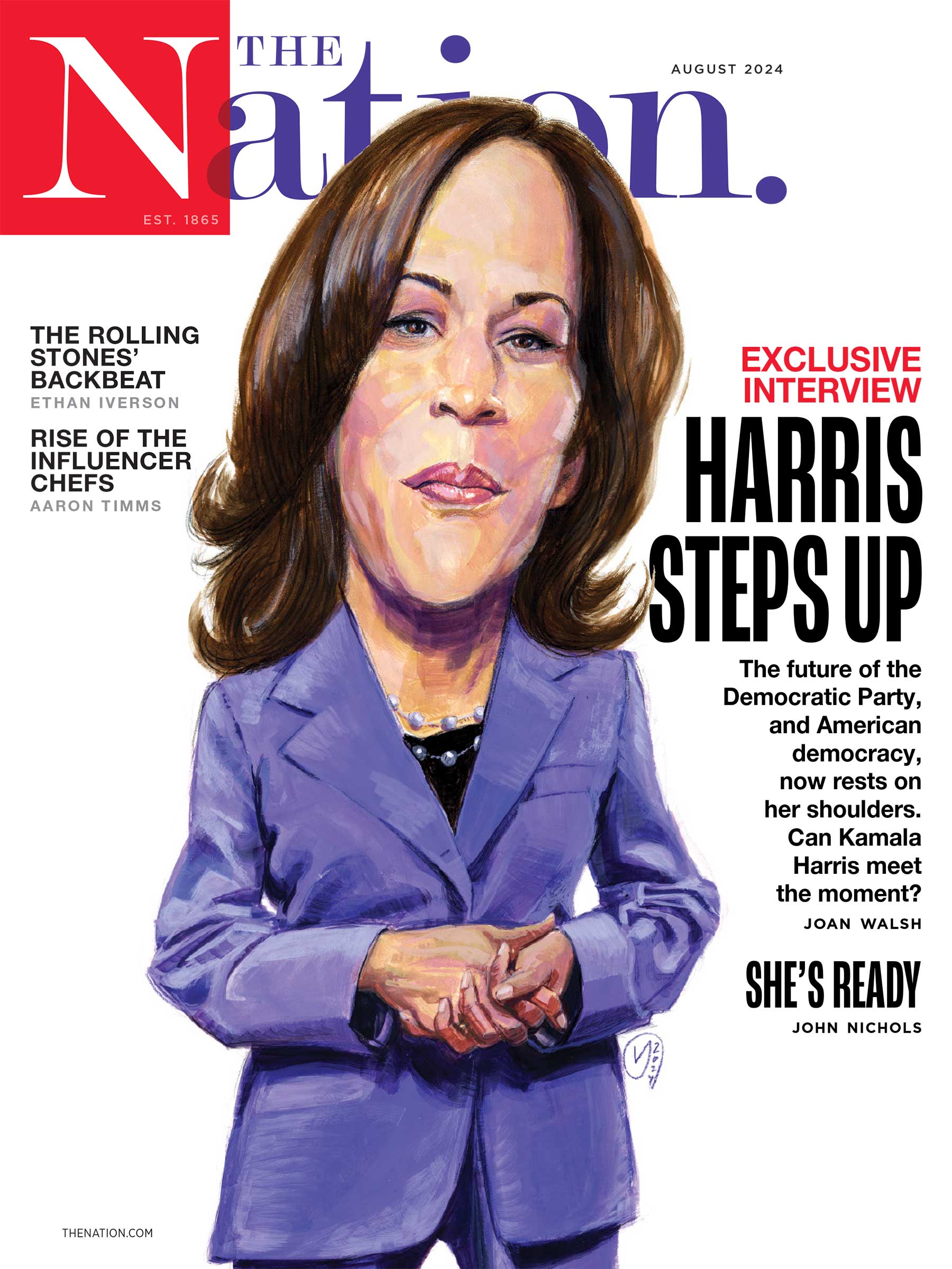
AH: New York Communities for Change comes out of the tradition of base building—this model of building power through meeting people where they’re at, in the workplace, in their neighborhoods, in their churches, wherever it is, and then building committees and an organization, that style of organizing. We’re led by our members, and our membership base determines what we do and what we fight for. And at the same time, NYCC takes a big-picture look at the economy and our political economy, saying, look, we’re based in the back yard of the center of global financial capital. And yeah, climate and fossil fuel financing is now a huge part of our work as well.
I think that’s a special combination, where you have a legitimate base in working-class communities of color in New York City, and that base is interested and activated in Wall Street accountability, going to Manhattan and yelling at banks, shutting them down, to move trillions of dollars of capital away from the industries that are impoverishing our communities and destroying our planet, and into something better.
WS: The campaign is primarily targeting Citigroup. On July 27, after weeks of actions at Citi’s headquarters, hundreds of people marched to Citi CEO Jane Fraser’s apartment building in lower Manhattan, and 59 were arrested (including the two of us) for peacefully blocking the sidewalk in front of the entrance. Fraser wants to brand, or greenwash, Citi as climate-friendly. What would you say to her if you could sit down and talk face to face?
AH: To put it plainly, talk is cheap. Put your money where your mouth is—or rather, take your money out of fossil fuels. Because at the end of the day, you can’t continue hiding behind various commitments, fancily worded net-zero pledges, blah blah blah. Citibank is the largest funder of new fossil fuel expansion since 2015. Specifically what that stat refers to is that Citibank, since the signing of the Paris Agreement, has been the bank, worldwide, that has put the most financing into the companies most involved in new coal, oil, and gas expansion. So when that’s the case with your company, talk is cheap. Put your money where your mouth is.
And the bottom line here, in terms of the global carbon budget, is that we actually can’t afford any new fossil fuel expansion. It’s a matter of physical reality—an unavoidable physical fact. Nobody’s going to get around that, no matter where you live.
WS: I’m impressed by the boldness of the campaign. It’s not just a one-off—it’s the entire summer, relentlessly coming back again and again. The tactic itself, people blockading the entrances to the Citi headquarters, is relatively low-risk—it’s accessible as mass civil disobedience—but to keep coming back is a type of escalation in itself, something we don’t see very much.
AH: Yeah, and we’re actually thinking, is this open-ended? Are we going to be continuing this in September and into next year? Because the whole point of it is to put a major power holder in this world of fossil fuel financing in a perpetual state of crisis, so they actually have to pay attention. One of our organizers has described it as the “sand in the eye of the camel” method. You’re only a grain of sand, but the camel’s going to go nuts! And of course we draw on the classic Martin Luther King quote [in “Letter from Birmingham Jail”], about creating that sense of crisis to bring somebody to the negotiating table.
WS: You’ve also put a lot of work into organizing various constituencies.
Yes. For example, we had a Gulf South week—obviously LNG is a major choke point now in terms of expansion of exports from the United States—and of course communities there have been fighting this stuff for decades. And we’re about to have migrant justice week, which is going to have a lot of different people from different parts of the world connect the struggles in their homeland—climate impacts and impacts of fossil fuel extraction and resource extraction—with what is happening now in their neighborhoods in New York City, the flooding, the heat waves, and connect it to the fossil fuel industry and fossil capital.
WS:: In late July there was a powerful action blockading the insurance giant AIG’s midtown headquarters. It was led by, and in solidarity with, people who are fighting the East Africa Crude Oil Pipeline (EACOP) in Uganda and Tanzania. What’s the story behind that?
AH: The East Africa Crude Oil Pipeline is such a direct example of what international solidarity can and should look like in the climate movement. Because, number one, people on the ground in Uganda and Tanzania—which this massive carbon bomb is going to run through—face excessively repressive conditions for protest. And number two, aside from Chinese capital, which is also in the mix, the biggest financiers and insurers of this project are all Western, and the company building it, Total, is a French company. So it’s a clear example of how global finance capital is perpetrating this horrible pipeline in this part of the world where it’s very, very hard to challenge it in a mass way, on the ground—though people there are bravely stepping into very escalated risks.
What we’re able to do in the United States, and what they’ve done in Europe as well, is to really go after the banks, and especially the insurers. If enough insurers say no, you’re not going to get it built. In fact, enough insurers have already said no that, in a not insignificant way, it’s actually impeding the construction of this pipeline right now. And we’re trying to get AIG to come out and say no. That was the biggest action against AIG so far in the campaign against EACOP.
People always say, “Climate justice is racial justice,” “Climate justice is decolonial,” but this was in a very real, concrete way, not just an activist slogan.
Popular
“swipe left below to view more authors”Swipe →
WS: Stepping back a bit, what is the Summer of Heat campaign really about? I mean, the hour is late, and global emissions are still at record levels when they need to be plummeting—and these banks like Citi are still financing massive new fossil fuel projects around the world, even as the IPCC and the IEA have made it crystal clear that all new fossil fuel expansion has to stop. What does it mean that the people we’re up against are people like Jane Fraser and the board of Citigroup who are doubling down in the face of this catastrophe?
AH: The core of it—this is how I feel personally and how the other organizers feel—is that we’ve reached this state of really, really sickening urgency. Which means we really have to take the bold step of abolishing fossil fuels and not just keep talking about it.
I mean, I hear a lot of defeatism, and certainly in the climate realm, there’s just so much nihilism, like, what does it matter? But I think this is really about an exercise in courage, and about ambition. It’s about having the courage to say, I don’t know how this is going to end—how the climate story is going to end—and it really terrifies me, but we’re still going to do this because we actually believe we have the agency to change the course. It’s really about faith in social movements.
And I also think it’s about ambition. Back in March, I was in an organizing meeting where we were trying to pitch this campaign, and of course the first question was, “Wow, it’s so long, you’re saying you’re going to go for three whole months, maybe even longer? I like the idea, but I don’t think it’s going to work.” And I’m like, look, whether it works or not is whether you and I and we all believe in it. We all need the courage, and we all need to have the ambition, to set our sights very, very high.
It makes me think of Mike Davis, the author and activist who passed away last year. One of his last interviews was with The Guardian, and he was basically saying, this dying man with great insights into the world, that what we need to see is nonviolent civil disobedience everywhere. The interviewer was like, “You’ve been organizing for social change your whole life. How do you deal with a future that looks so bleak?” And he said [reading]:
I’ve seen miracles happen. I’ve seen ordinary people do the most heroic things. When you’ve had the privilege of knowing so many great fighters and resisters, you can’t lay down the sword, even if things seem objectively hopeless.… What keeps us going, ultimately, is our love for each other, and our refusal to bow our heads, to accept the verdict, however all-powerful it seems. It’s what ordinary people have to do. You have to love each other. You have to defend each other. You have to fight.
It’s such a beautiful quote. It encapsulates everything we’re saying.
Can we count on you?
In the coming election, the fate of our democracy and fundamental civil rights are on the ballot. The conservative architects of Project 2025 are scheming to institutionalize Donald Trump’s authoritarian vision across all levels of government if he should win.
We’ve already seen events that fill us with both dread and cautious optimism—throughout it all, The Nation has been a bulwark against misinformation and an advocate for bold, principled perspectives. Our dedicated writers have sat down with Kamala Harris and Bernie Sanders for interviews, unpacked the shallow right-wing populist appeals of J.D. Vance, and debated the pathway for a Democratic victory in November.
Stories like these and the one you just read are vital at this critical juncture in our country’s history. Now more than ever, we need clear-eyed and deeply reported independent journalism to make sense of the headlines and sort fact from fiction. Donate today and join our 160-year legacy of speaking truth to power and uplifting the voices of grassroots advocates.
Throughout 2024 and what is likely the defining election of our lifetimes, we need your support to continue publishing the insightful journalism you rely on.
Thank you,
The Editors of The Nation
More from The Nation
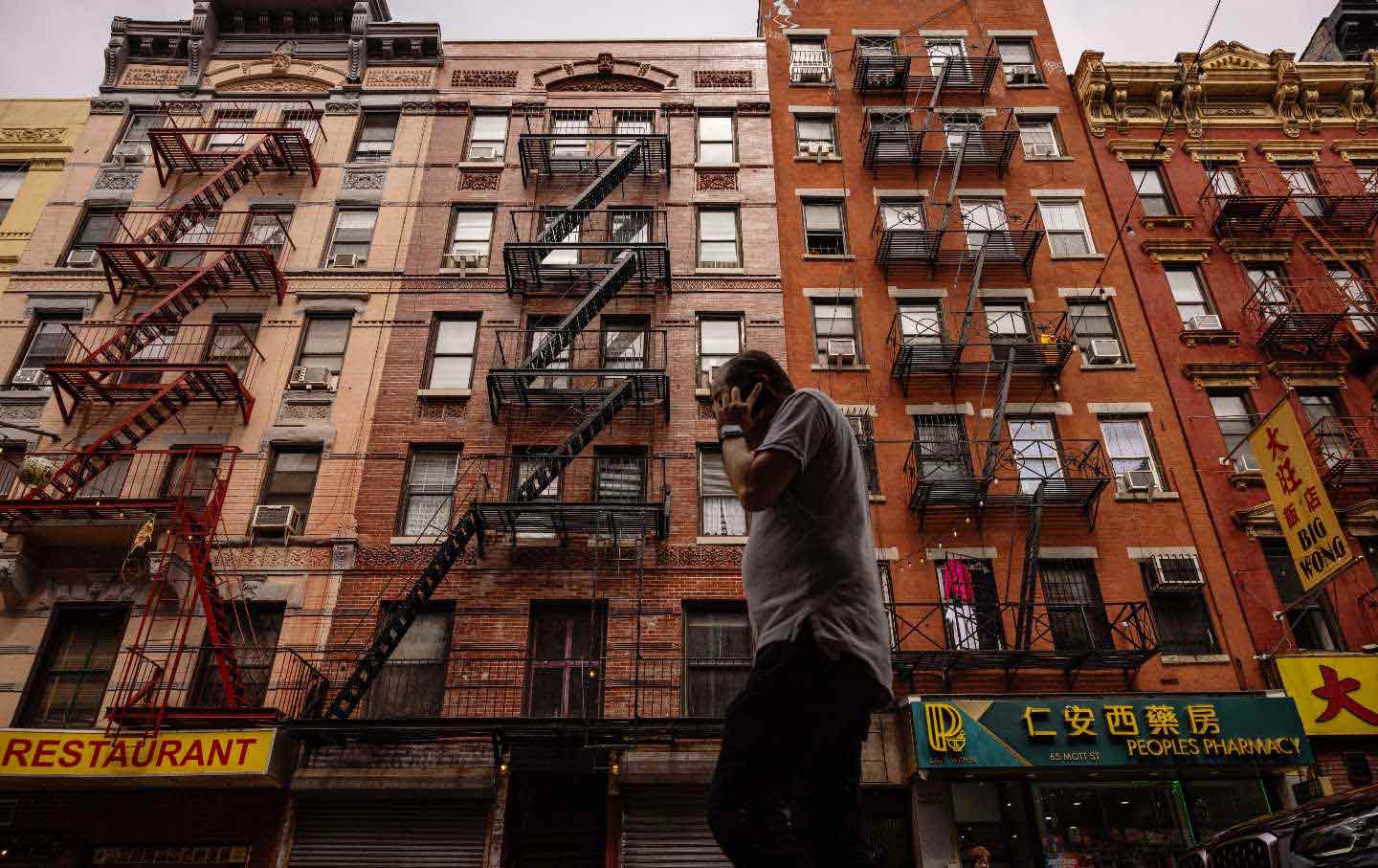
The climate crisis demands that we retrofit them—which won’t happen at scale until architects start seeing themselves as political actors.
Column
/
Kate Wagner
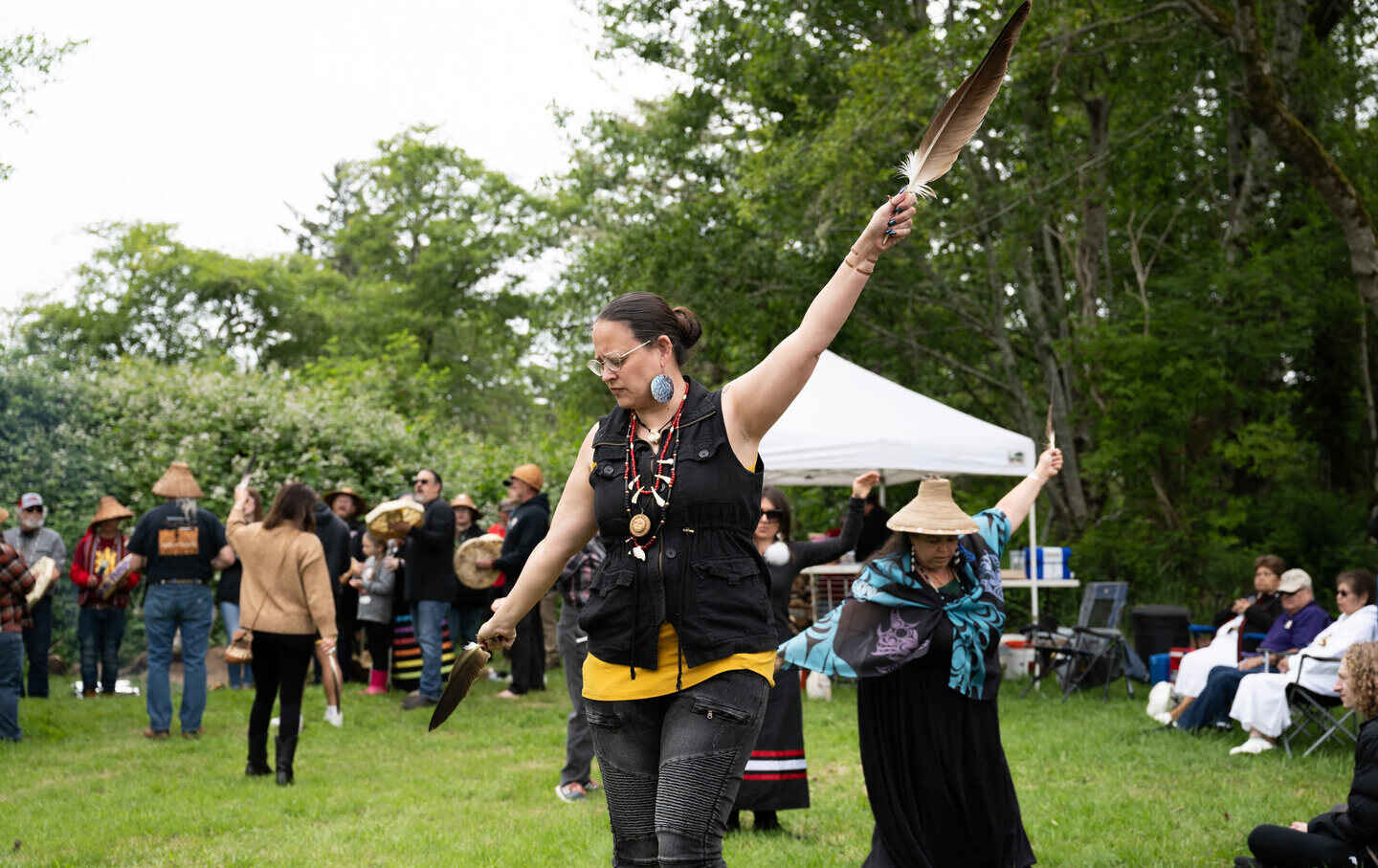
Tribes seeking federal recognition so they can better address climate change face a catch-22 as climate change jeopardizes the documents they need for recognition.
Interactive
/
Ottavia Spaggiari
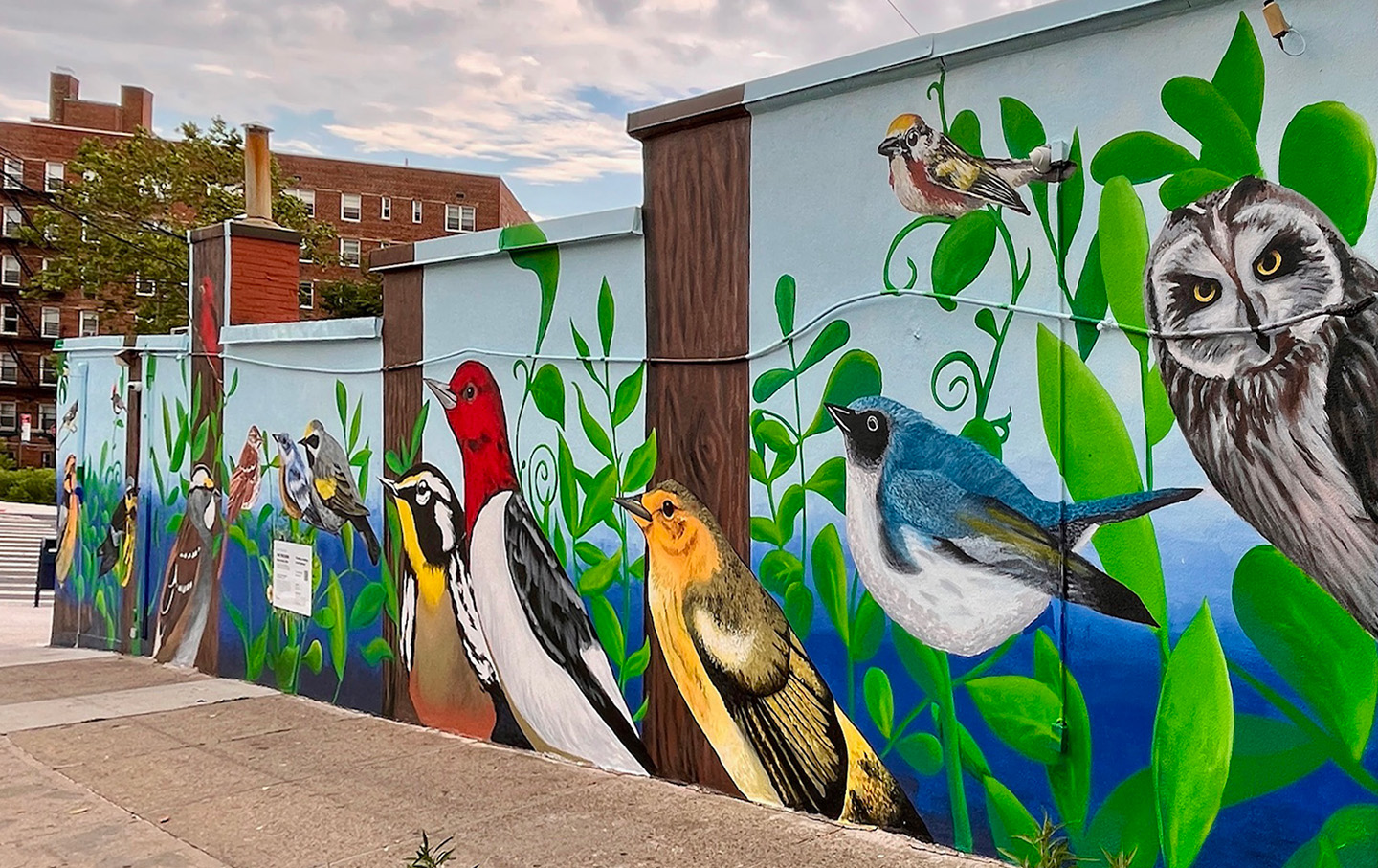
Fifteen local birds threatened by climate change, street mural, Bronx, NY.
OppArt
/
Nicky Enright
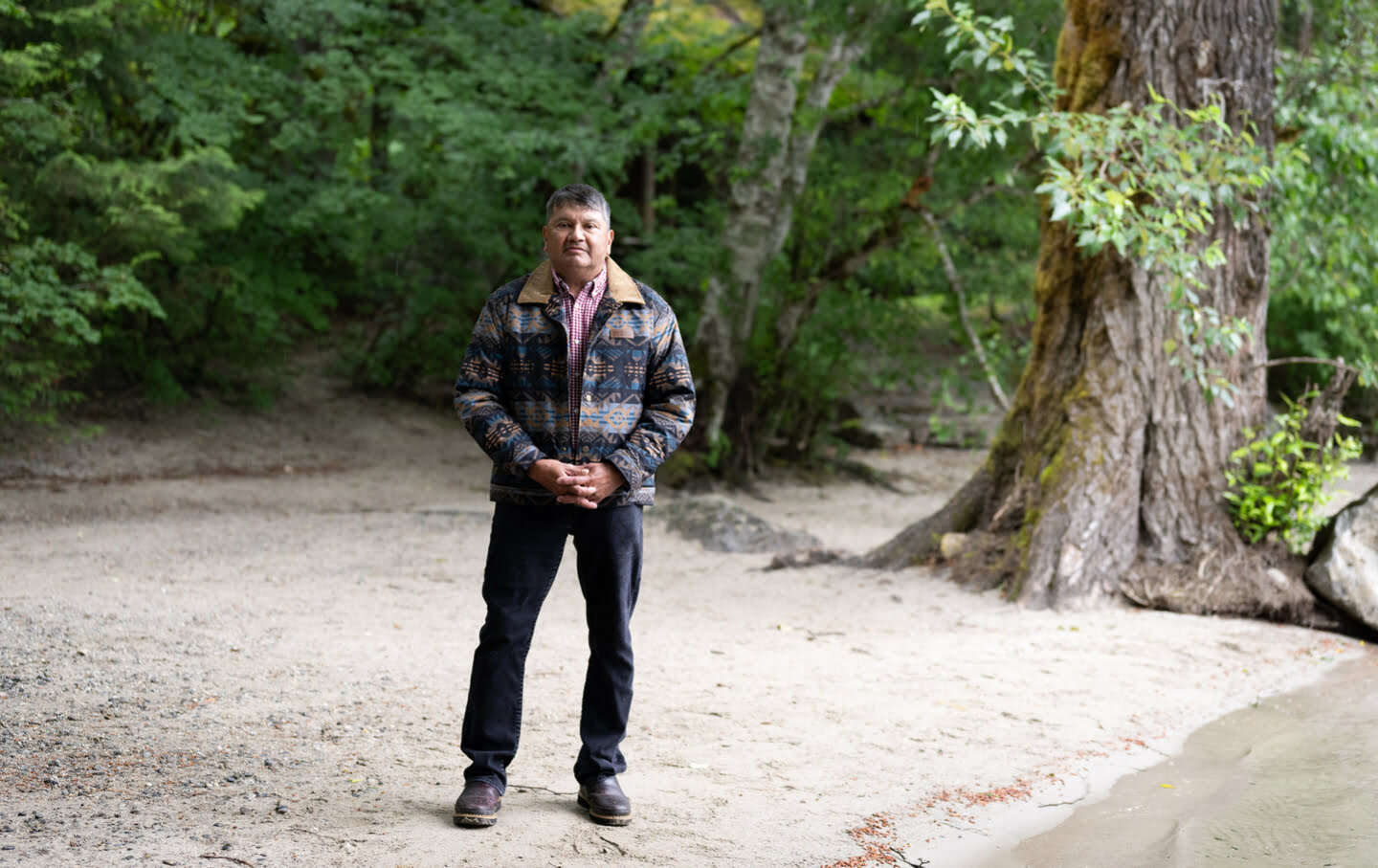
Newly discovered documents reveal how Seattle’s City government knowingly impacted an Indigenous Tribe’s treaty rights for over a century.
Interactive
/
Rico Moore
